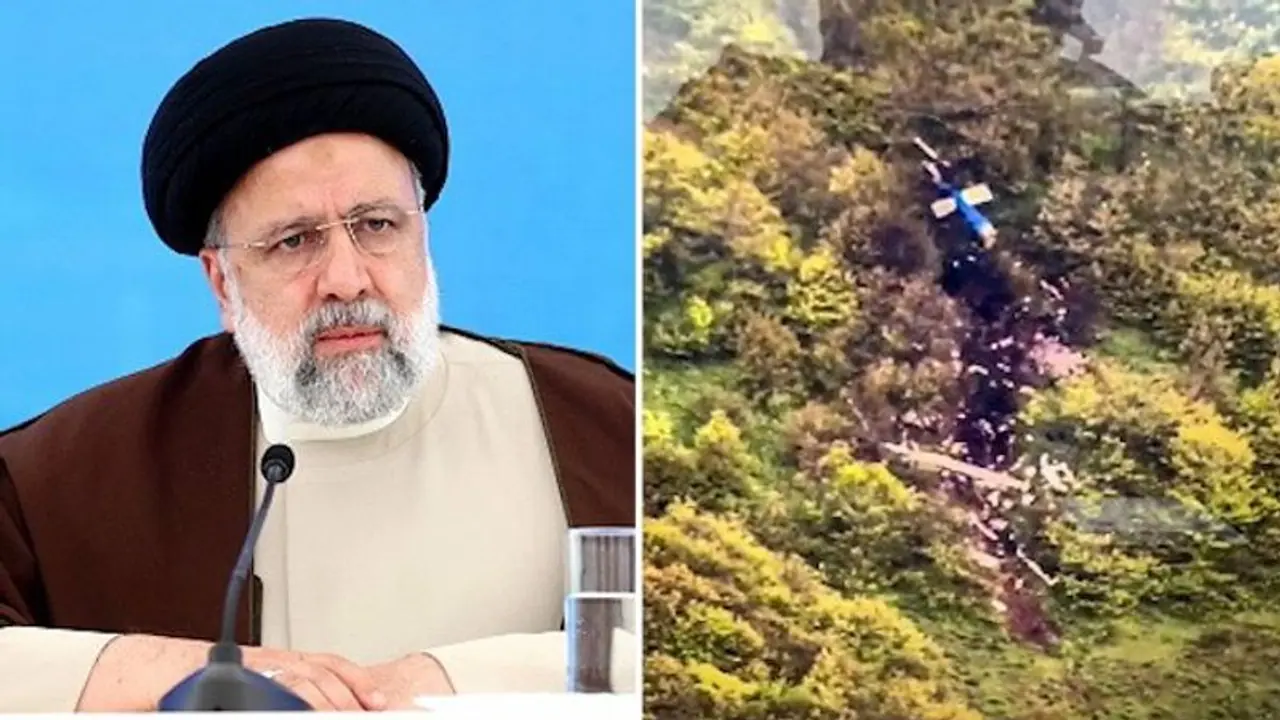Iranian state-run media have confirmed the death of President Ebrahim Raisi and foreign minister Hossein Amir-Abdollahian in a helicopter crash in the province of East Azerbaijan on Sunday as they headed towards the city of Tabriz.
The sudden death of Iranian President Ebrahim Raisi, alongside key officials, in a helicopter crash on Sunday has sent shockwaves throughout Iran and beyond. As the nation mourns the loss of its leader, speculation and conspiracy theories about the circumstances surrounding the crash have begun to emerge, with some pointing fingers at Israel and its intelligence agency, Mossad.

Raisi, known for his hard-line stance and close ties to Iran's supreme leader, had a controversial legacy marked by his involvement in the mass executions of thousands in 1988 and Iran's pursuit of uranium enrichment. His presidency was characterized by heightened tensions with neighboring countries, particularly Israel, culminating in a substantial drone-and-missile attack on Israeli territory.
The official explanation for the helicopter crash cited adverse weather conditions, including rain and fog, as contributing factors. However, given the political climate and Raisi's contentious tenure, questions have been raised about the possibility of foul play. In particular, some Iranians have speculated that Israel could have orchestrated the crash as a means of eliminating a perceived threat.
Recent escalations between Iran and Israel, including the assassination of an Iranian general in Damascus followed by Iran's retaliatory missile barrage, have fueled suspicions of Israeli involvement. Mossad, known for its covert operations against Iranian interests, has been implicated in various incidents in the past. However, the notion of Mossad targeting a sitting president raises eyebrows and prompts skepticism among experts.
The Economist reported on the speculation, acknowledging the historical animosity between Iran and Israel but highlighting the implausibility of Israeli involvement in such a high-profile assassination. Experts argue that assassinating a head of state would constitute a direct act of war, likely inviting a severe response from Iran. Israel's strategic focus has traditionally been on military and nuclear targets rather than political figures.
"There are strong reasons to doubt Israel’s involvement. It has never gone so far as to assassinate a head of state, an unequivocal act of war that would invite a fierce Iranian response," the Economist report said.
Despite the skepticism surrounding the conspiracy theories, the timing of the crash exacerbates regional tensions. The geopolitical environment is complicated by Iran's network of proxies in Lebanon, Syria, Iraq, and Yemen, especially in light of the current confrontation between Israel and Hamas. Any unrest among Iran's elite could give these factions more confidence and possibly spark larger hostilities.
Here's a look at how users on X, formerly Twitter, reacted to Iran President's death in a chopper crash with several pointing fingers at Israel:
